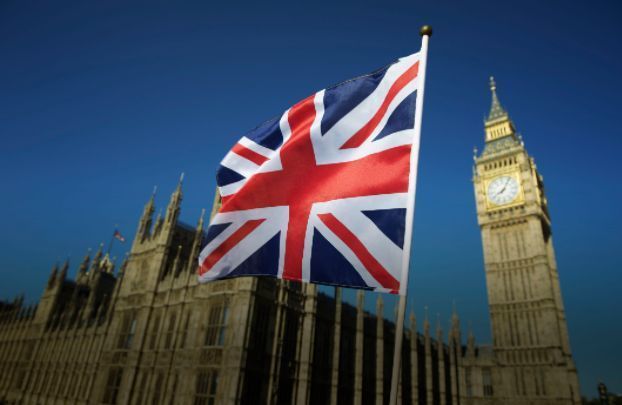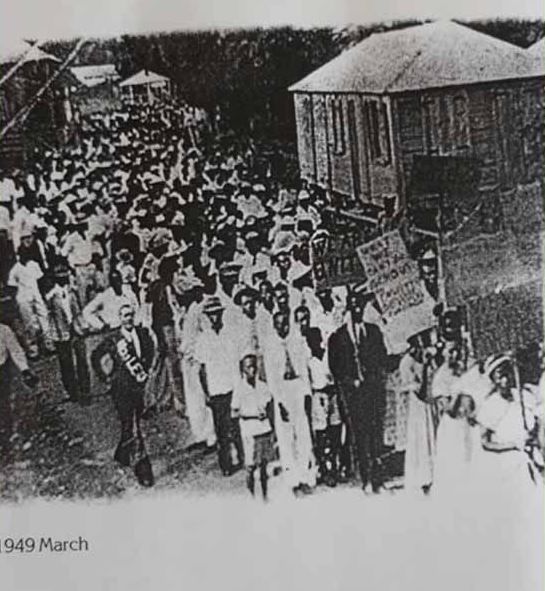
VIYP Premier: ‘Now is the time to choose our own destiny’
Fahie, who holds the title of Premier, Minister of Finance and Member for the Eighth District in the VIYP, made the courageous statement as the territory’s youths debated the issue of self-determination at the first sitting of the VIYP on March 11, 2021, at the Save the Seed Energy Centre in Duff’s Bottom, Tortola.
A 'right' to determine destiny
As he tackled the “hot topic”, Fahie noted that the United Nations (UN) defines self-determination as the right of a people to determine their destiny – “a right which we continue to work for, and so justly deserve.”
He pointed out that self-determination refers not only to independence. The path to self-determination, he said, has “many roads” that also include free association and integration. Thus, for the Virgin Islands, the debate “is not really about self-determination” but the model of self-determination that is best for the Virgin Islands at this time.
Independence, Fahie said, occurs when a country gains freedom from outside control. This requires separation from the Crown and establishing a separate sovereign state. Integration, he continued, means merging with and becoming part of the Crown; “accepting all their laws and relinquishing the ability to self-govern.” Those two options, he said, would do a disservice to the Virgin Islands people at this time, “as one option does not allow adequate time to secure ourselves and the other entirely strips us of our voice.”
 A free association with the United
Kingdom (UK), according to Mr Kevin S. Fahie, would allow Virgin
Islanders greater autonomy and fortify their vision for the territory,
while maintaining a relationship with the Crown through a Lieutenant
Governor who would be appointed by the parent country to represent its
interest.
A free association with the United
Kingdom (UK), according to Mr Kevin S. Fahie, would allow Virgin
Islanders greater autonomy and fortify their vision for the territory,
while maintaining a relationship with the Crown through a Lieutenant
Governor who would be appointed by the parent country to represent its
interest.
A Free Association the best fit for VI
However, a free association with the United Kingdom (UK), he added, would allow Virgin Islanders greater autonomy and fortify their vision for the territory, while maintaining a relationship with the Crown through a Lieutenant Governor who would be appointed by the parent country to represent its interest. In that relationship, the Crown would assist in areas such as national security while the elected government would have the autonomy to manage the territory’s internal affairs with less external control or interference.
Fahie pointed out that several other countries such as Jersey, Guersney and the Cook Islands have adopted the free association model and are doing very well. “They are self-governing countries, managing their own affairs. They have established an identity of their own on the international stage,” he said.
 The Great March of 1949 was led by
Theodolph Faulkner of Anegada. He was joined by Isaac G. Fonseca and
Carlton L. deCastro, and over 1,500 Virgin Islanders as they marched
through the streets of Road Town to the Commissioner’s Office in protest
of issues adversely impacting the Territory.
The Great March of 1949 was led by
Theodolph Faulkner of Anegada. He was joined by Isaac G. Fonseca and
Carlton L. deCastro, and over 1,500 Virgin Islanders as they marched
through the streets of Road Town to the Commissioner’s Office in protest
of issues adversely impacting the Territory.
VI has always been on a path to self-determination
The youth parliamentarian noted that the Virgin Islands has been on a path to self-determination for 70-odd years. On November 24, 1949, he noted, 1,500 persons from across the Virgin Islands gathered in Road Town to participate in a march “for change and a brighter future.” At the head of that march was Theodore H. Faulkner, Isaac G. Fonseca and Carlton L. De Castro.
Virgin Islanders marched through the streets to the Commissioner’s office where they presented a petition of their grievances against the existing political system and the manner in which governance was being administered. It was that demonstration that brought the Territory’s first election in the 20th century, electing the Honourable Hamilton Lavity Stoutt as the territory’s first Chief Minister in 1967. “The significance of that milestone should continue to be felt, appreciated, cherished and used as fuel to propel us forward,” Fahie said.
He added that four years later, the territory elected its second Chief Minister, Honourable Willard Wheatley, under whose leadership the VI became financially sustainable so that the territory did not need UK funding to balance its budget and hence later came off Granting Aid in 1978.
“Can you imagine the audacity of Honourable Wheatley to have a dream of financial freedom for his country? To action that dream? And achieve it? What a monumental achievement. One that is an example for us this very day. That when our people set their mind to a task, mountains move as much can be achieved,” Fahie told the Members of the VIYP.
A need for change
He further stated that while the people of the Virgin Islands “respect and acknowledge the purpose of the Governorship”, as of recent it would seem that relationship has deteriorated, proving that there is a need for change.
“We are at the point in our history where the relationship between the Virgin Islands and the UK needs a change. Because we have to think about the aspirations of the people of the Virgin Islands against the UK’s commitment to its Global Britain strategy,” Fahie said.
He explained that with the UK exiting the European Union – a decision of the UK citizenry, the UK is finding itself subject to new requirements from the UN, which Virgin Islanders are being forced to conform with, for example with respect to open registers of beneficial ownership for the financial services industry.
“This measure was imposed on us from the Crown to ensure that Britain meets its requirements imposed by the UN for transparency. This was not a result of our inability to foster transparency or our negligence.” It was a safeguard to ensure that Britain does not violate international AML obligation and avoid UN sanctions,” Fahie said.
“There are too many instances where our free will as a people has [been] and continue[s] to be imposed upon. Is this the UK’s definition of democracy, Madam Speaker, to impose their will upon us in any and all instance where we refuse the premise? We cannot continue to have a voice only when it suits their agenda.
Spirit of fear a hindrance to growth
“This is why we must continue on the path of self-determination by first moving towards a free association. Free, in the truest sense of the definition – unencumbered, able to choose our own destiny, and not as the Crown is willing to allow. Our right as a people to chart our own course must be acknowledged.”
Fahie said it is human nature to fear the unknown and, therefore, self-determination can be an intimidating subject for some persons. However, he said, “the spirit of fear is a hindrance to growth,” and if Virgin Islanders run from the issue they will find themselves “looking back decades from now pondering and imagining what could have been if only we had stepped out in faith.”










